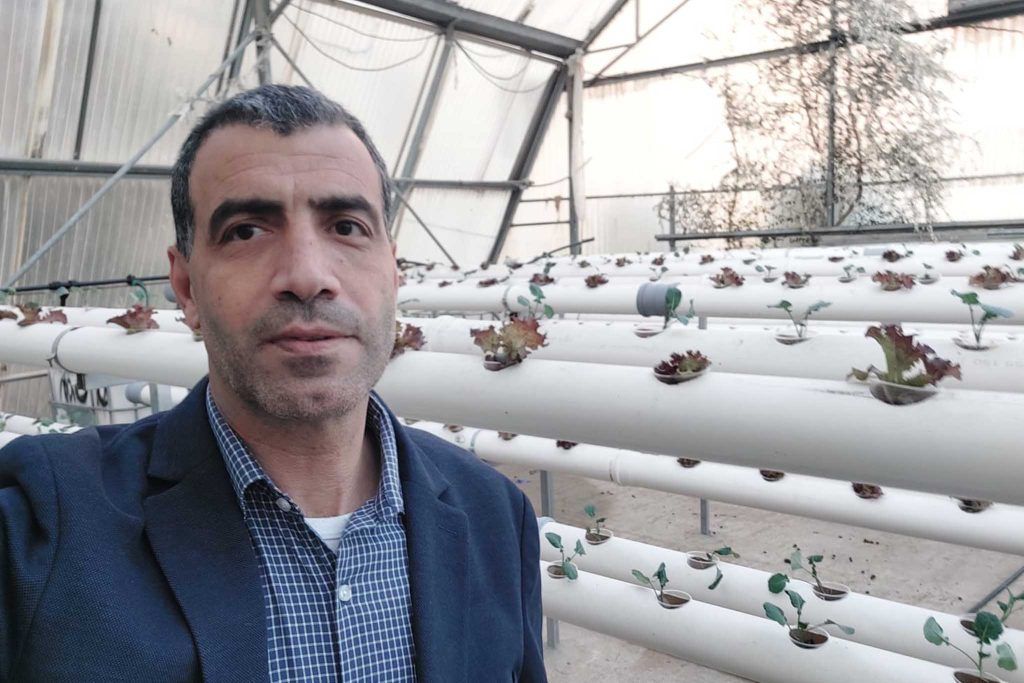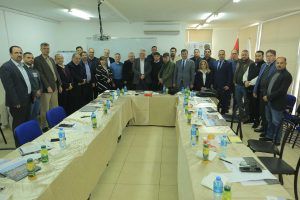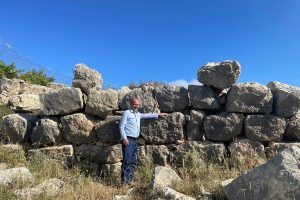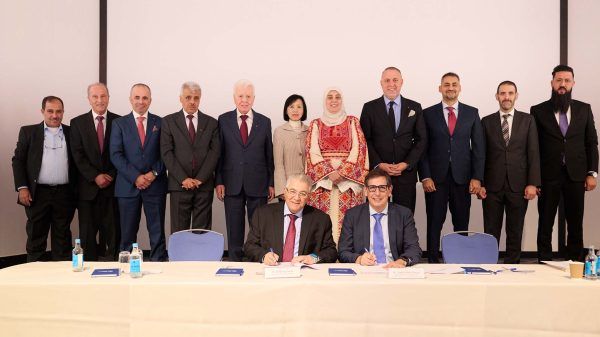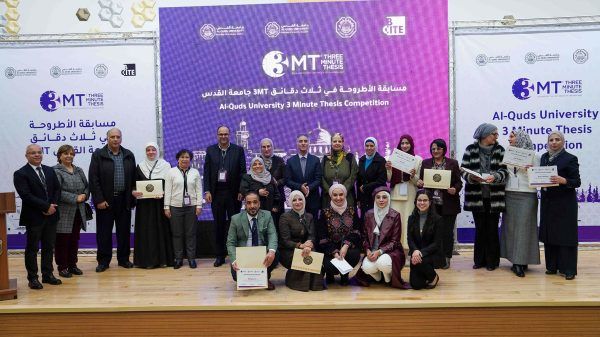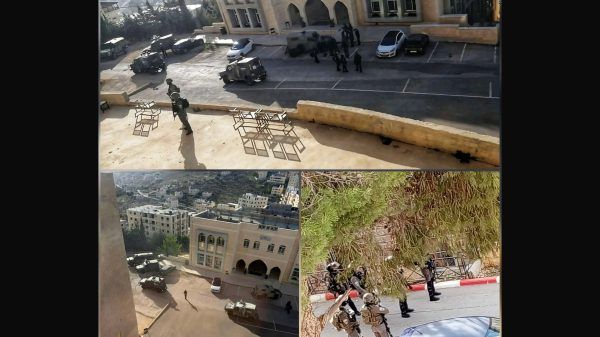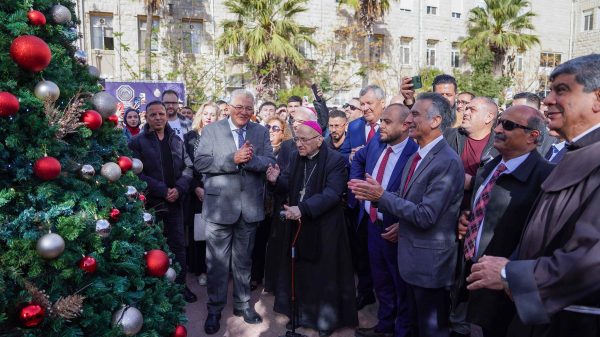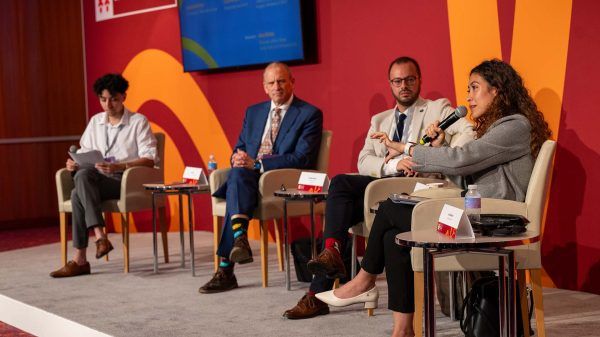Dr. Mohannad Qurei and student Carmal Awad from the Master’s program in Water Resources Management Engineering were awarded the 2025 MEDRC WATER RESEARCH (THE MIDDLE EAST DESALINATION RESEARCH CENTER). This prestigious award is funded by the Sultanate of Oman and acknowledges their research entitled “Nutrition Recovery From Aquaculture Effluent Using Hydroponic and Wetland Systems.”
According to the provisions of the grant, Carmal, under the supervision of Dr. Muhannad Qurei, with the participation of a group of chemistry and medicinal chemistry students, will conduct a follow-up study to a previous preliminary research study. The preliminary study was related to the cultivation of fish and the utilization of the nutrients found in these waters for the purpose of growing two different crops, namely red American lettuce and broccoli.
The study aims to examine the feasibility of using water from fish farming to grow broccoli and red American lettuce using organic fertilizer without the need for chemicals, using both hydroponic and conventional soil farming techniques, achieving equivalent efficiency and safety standards for human health.
“A multi-way comparison will be made in terms of how irrigation with water flowing from fish farming ponds affects the productivity of red American lettuce and broccoli plants grown using hydroponic and conventional soil farming techniques,” says Dr. Qurei.
According to Dr. Qurei, an analysis of the characteristics of the utilized water will be conducted. Water originating from fish farming ponds and water containing chemical fertilizer will be examined, along with a comparison of the different variables of the irrigated plant with the two types of water in terms of physical, chemical, and biological plant characteristics. The results of this study will be compared with the same plants that will be grown traditionally using the type of soil prevailing in the region. The same characteristics will be studied, and the effect of irrigation on physical, chemical, and biological soil characteristics will be examined.
Dr. Qurei asserts that these projects possess multifaceted standpoints. From a nutritional standpoint, these initiatives are regarded as a priority in addressing food security concerns, given their emphasis on the incorporation of fish, which is one of the preferred types of food in the Palestinian territories for Palestinian citizens. Beyond nutrition, these projects also generate employment opportunities and present challenges for Palestinian citizens.
Dr. Qrei continues, “Conversely, the reuse of water from fish farming ponds for irrigation purposes has been identified as a beneficial strategy for safeguarding groundwater and soil quality. This approach not only ensures the use of contaminated water for agricultural purposes but also serves as a viable solution for enhancing the economic viability of fish farming by ensuring a steady supply of marketable fish. Furthermore, this practice reduces the cost of using fertilizers. Finally, this strategy represents a rational utilization of water resources for agricultural applications rather than using potable water.
“We can summarize this project as multifaceted and possessing wide-ranging benefits on all fronts in the domains of water and food. Therefore, we hope to be the ones to take the first step towards progress in this field,” he concludes.


